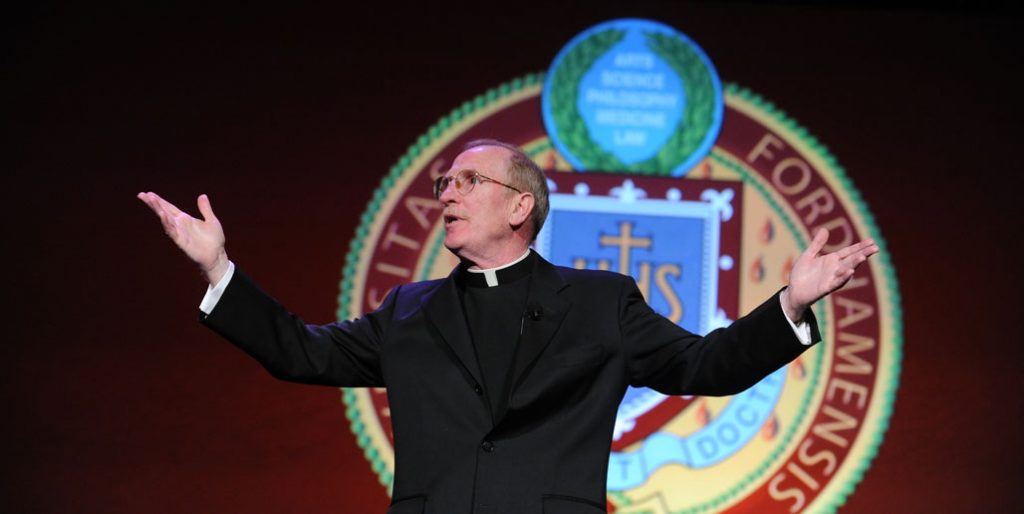Joseph M. McShane, S.J., president of Fordham, will join four Catholic university presidents at Notre Dame University for a lecture and panel discussion on Sept. 5 in honor of the 50th anniversary of the landmark Land O’Lakes Statement.
Taking place in the McKenna Hall Auditorium of the Notre Dame Conference Center in Notre Dame, Indiana, the “Land O’Lakes and Its Legacy” lecture and panel aims to explore the document’s significance, and foster conversations on the role of the contemporary Catholic university.
The declaration—which was issued on July 23, 1967 by educators, administrators, bishops, and leaders of prominent Catholic universities in North America—was drafted on the University of Notre Dame’s property in Land O’Lakes, Wisconsin, in an effort to chart the future of Catholic higher education. Formerly known as The Idea of the Catholic University, the pronouncement was developed to promote “intellectual excellence and spiritual development in American Catholic higher education.”
The 50th anniversary event will kick off at 4 p.m. with a talk from John T. McGreevy, dean of Notre Dame’s College of Arts and Letters and a professor of history. In his address, McGreevy will discuss the history of the momentous statement.
Following McGreevy’s lecture, Father McShane will participate in a panel discussion at 7 p.m. about the impact of the Land O’ Lakes Statement and its relevance for today.
The discussion will also feature:
- Rev. John I. Jenkins, president of Notre Dame University;
- Rev. Willian P. Leahy, president of Boston College;
- Patricia McGuire, president of Trinity Washington University; and
- Julie H. Sullivan. president of the University of St. Thomas
The lecture and panel discussion are sponsored by the University of Notre Dame’s Cushwa Center for the Study of American Catholicism, in collaboration with the Office of the President. The event is free and open to the public.
Among the key qualities that the Land O’Lakes statement emphasized was cultivating a community of learners and scholars at Catholic universities, “in which Catholicism is perceptibly present and effectively operative.”
Additionally, the document outlined the importance of “intellectual disciplines,” a theological faculty, interdisciplinary dialogue, a critical reflective intelligence of the church, academic research, and public service within the Catholic university structure.

